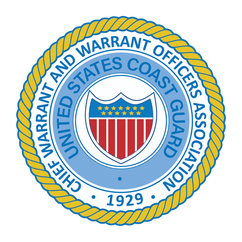|
By: Jordan Kolb, Legislative Intern
On March 1st, the House committee on Veterans Affairs held a joint hearing with the Senate committee on Veterans Affairs to discuss the issue of toxic exposure to active duty Service Members and Veterans of the U.S. Military. Chairman Mark Takano began the hearing by highlighting his proposed legislation, the Honoring our PACT Act (H.R. 3967), which has gone through a full legislative process and is expected to be voted on in the House of Representatives later this week. H.R. 3967 combines several pieces of proposed legislation regarding toxic exposure in the military. The bill aims to address the gamut of issues affecting toxic-exposed Veterans access to VA healthcare benefits. Andrew Marshall, National Commander of Disabled American Veterans (DAV) opened with a testimony that highlighted the importance of HR. 3967. Mr. Marshall stated that the VA centers have seen a 35% uptick in patients in the past 5 years while delivering a quality of care that has, on average, shown to be higher than most private care options. Mr. Marshall was adamant in his faith in the VA’s capabilities, however, conceded that certain steps need to be made to expand sufficient care to a larger scale. While key components of HR. 3967 would expand grounds for presumptions of exposure to toxic substances, the DAV believes that increased capabilities in processing claims is the key to unlocking the full potential of the VA’s delivery of care. A significant topic surrounding the toxic exposure legislation process has been expediency of presumption expansions based on the VA’s current capabilities and legal authority as the legislative process runs its course. Senator Jerry Moran of Kansas noted that the department of the VA does in fact have the legal authority to expand presumptions right now. Senator Moran expressed confusion as to why the VA would wait until the legislative process is done to take up presumption expansion work considering that the step is supported by the current administration. The DAV fully agrees that the legal authority is held by the VA to expand presumptions, however, suggests that the necessary framework has faded. There is now an internal debate as to whether the new framework should be by statute and regulation or internal decision based on knowledge provided by a team of advisors to the secretary of the VA (there is a pilot program being built for this right now). Regardless of the chosen framework, ultimately each administration will be able to interpret the rules as they please and the DAV is adamant that Congress holds the ultimate power to draft legislation that would direct the sitting secretary of the VA’s execution of operations.
0 Comments
Leave a Reply. |
AuthorThe views expressed in the articles in this publication are solely those of the authors. They do not necessarily reflect the opinions of the organizations for which they work, CWOAUSCG, the U.S. Coast Guard, the Department of Defense, the Department of Homeland Security, or the U.S. government. Archives
June 2024
Categories
All
|

 RSS Feed
RSS Feed
